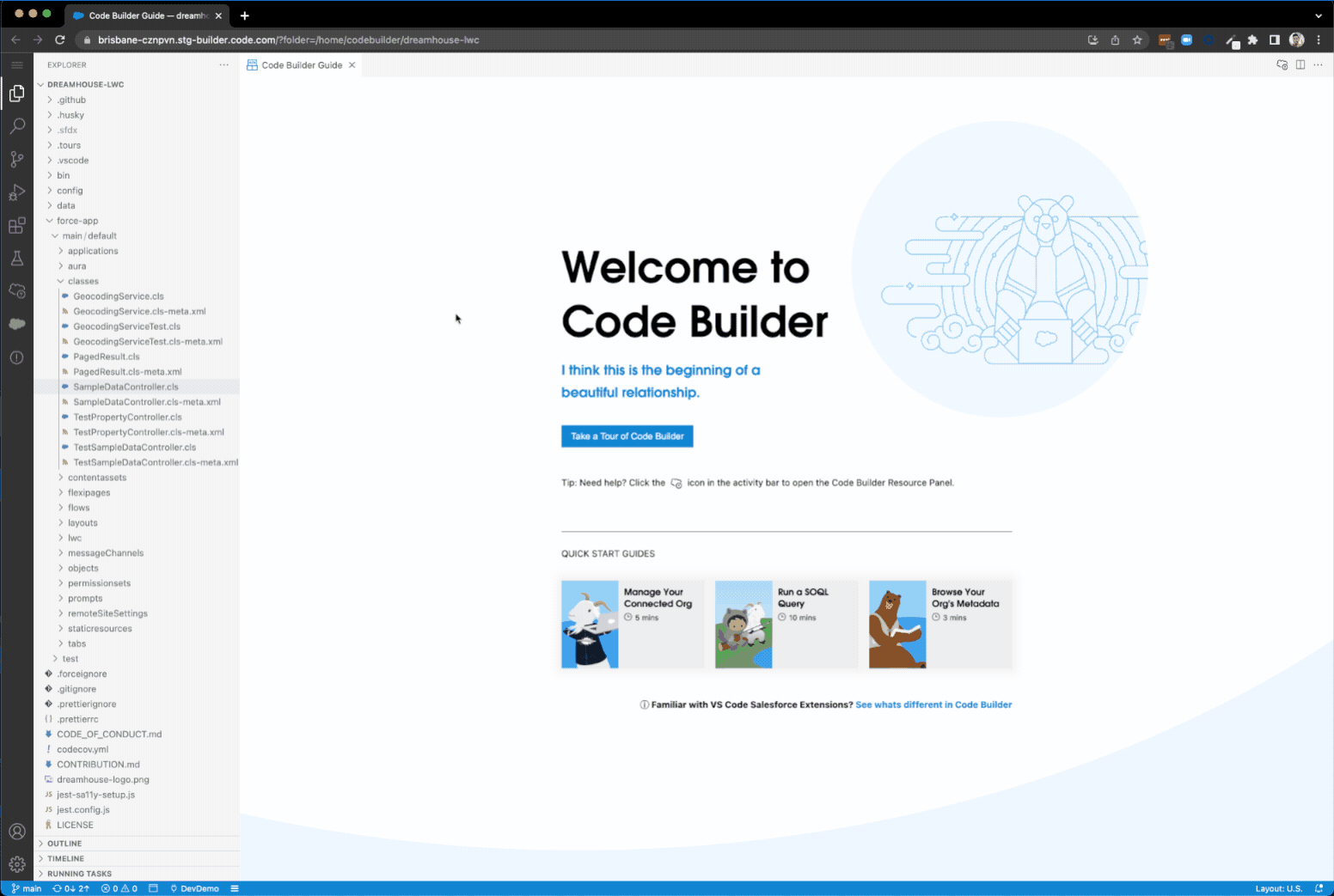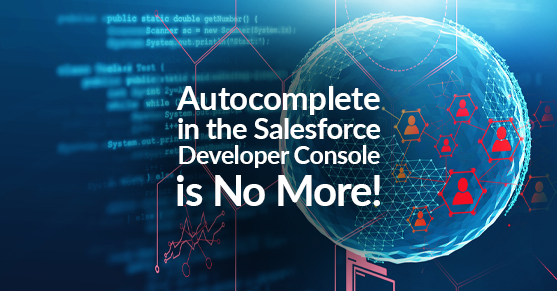Yes, you heard that right! Salesforce is retiring the Autocomplete feature from the Developer Console in the Winter of 2024.
Auto-complete is not going away entirely… it is still available for custom Apex classes and SObjects. Unfortunately, the full auto-complete was just becoming far too resource-intensive, forcing Salesforce’s hand to retire the feature.
In our opinion, this really was long overdue as the Developer Console interface left much to be desired, and this will force Salesforce developers to move to more efficient coding tools. Salesforce recommends two alternatives, which we describe below:
1) Salesforce Extensions for Visual Studio Code (VS Code)
Salesforce Extensions for Visual Studio Code (VS Code) is a set of tools that enhances the development experience for Salesforce developers using the popular code editor, VS Code. These extensions provide a streamlined and powerful environment for developing and managing Salesforce applications directly from within VS Code. They are designed to increase productivity, provide code completion, offer debugging capabilities, and make it easier to work with Salesforce metadata and data.
Key Features of Salesforce Extensions for VS Code

- Apex Language Support: Includes the ability to highlight syntax, code auto-completion, and error checking for Apex.
- Visualforce Support: Similar syntax highlighting and auto-completion features also work with Visualforce pages
- Lightning Components: The extensions enable you to work with Lightning Components, including Aura components and Lightning web components, with code highlighting and suggestions.
- SOQL and SOSL Queries: Salesforce Object Query Language (SOQL) and Salesforce Object Search Language (SOSL) queries can be written directly within VS Code.
- Code Navigation: Unlike the clunky Developer Console, developers can now easily navigate between Apex classes, Visualforce pages, Lightning components, and other metadata components using the integrated file browser and quick navigation features.
- Debugging: with the ability to set breakpoints, inspect variables, and step through your Apex code for effective debugging.
- Git Integration: The extensions integrate with version control systems like Git, enabling you to manage your source code and collaborate with other developers.
- Salesforce CLI Integration: You can interact with the Salesforce Command Line Interface (CLI) directly from VS Code, allowing you to deploy, retrieve, and manage metadata.
- Org Development: Developers can connect to different Salesforce orgs from within VS Code, making it easier to work on multiple projects simultaneously.
- Live Share Integration: Visual Studio Live Share allows developers to collaboratively edit and debug code in real-time, which can be beneficial for pair programming or seeking assistance from colleagues.
- Github Copilot Compatible – Harness the power of AI-assisted coding with the powerful Github Copilot extensions. An example is the smart recommendation shown below.

2) Salesforce Code Builder
(Still in Beta as of this writing)
For those who still prefer the all-web experience without having to install software and extensions, Salesforce Code Builder is a development environment that can be spun up in seconds and is custom to your Salesforce org and your specified project. Through Code Builder, access your favorite Salesforce languages and frameworks, such as Apex, SOQL, Visualforce, Aura, and Lightning Web Components. Access rich developer tools such as debuggers for Apex, Linting, and so on. You can install Code Builder as a managed package in any supported Salesforce org edition.
Salesforce Code Builder is a web-based IDE that has all the power and flexibility of Visual Studio Code, Salesforce Extensions for VS Code, and Salesforce CLI in your web browser. Code Builder provides a modern developer experience for all developers, regardless of expertise level. Code Builder makes it easy for admins and developers alike to work in the cloud without having to worry about downloading software, setup, or machine specs.
You can access the code builder beta via the app exchange here:
https://appexchange.salesforce.com/appxListingDetail?listingId=a0N4V00000HddeKUAR

Which of these replacement tools do you like or dislike… what’s your favorite? Maybe you use both for different reasons? Maybe you still want to cling to your Developer Console for dear life! Let us know in the comments below!
For more information, please contact us, or head over to our Salesforce Admin On-Demand Solutions page.

